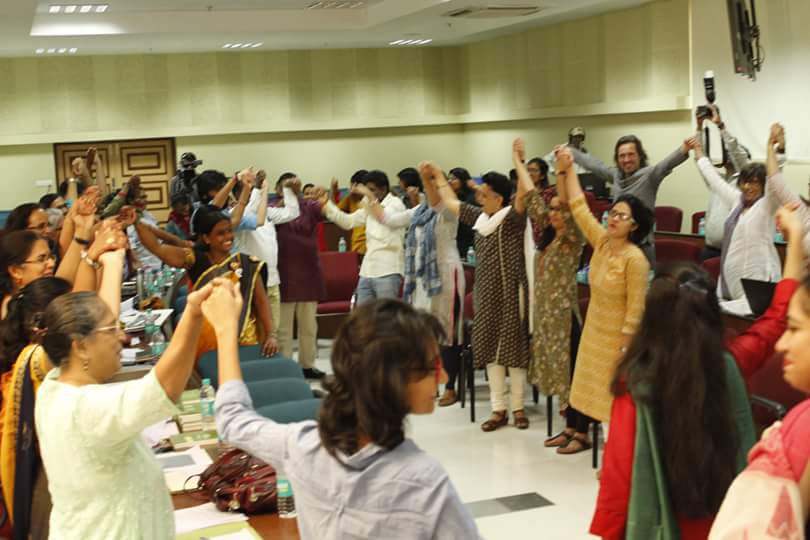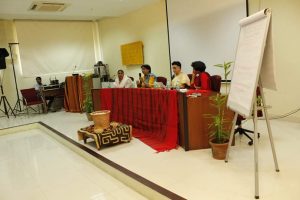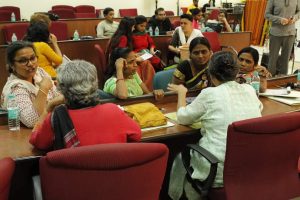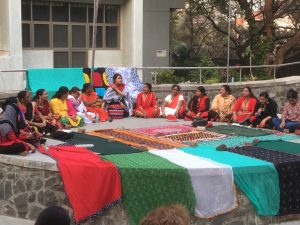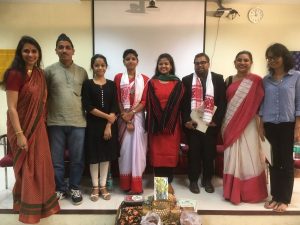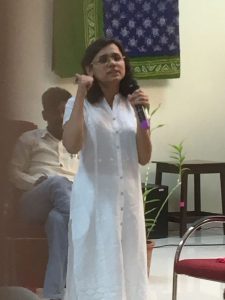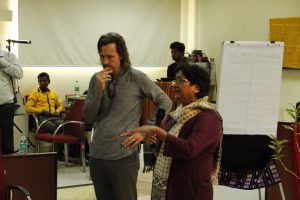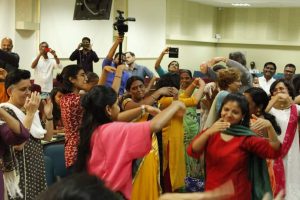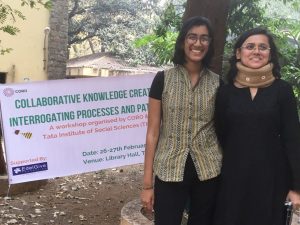Collaborative Knowledge Creation: Trans4m Co-Engaging in Grassroots Conference in Mumbai
27 February 2018: The Tata Institute for Social Science (TISS), together with Trans4m’s partner organisation CORO, hosted a collaborative workshop space to explore and inact more collaborative and integral forms of knowledge creation and social innovation.
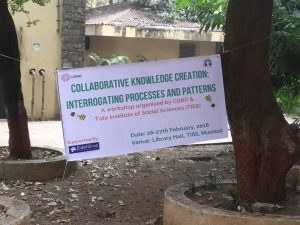 TISS, India’s most renowned social science research institute, and CORO, a widely recognised grassroots development organisation with a primary focus on women empowerment in India’s state of Maharashtra, invited for a three-days conference – bringing together researchers, communities, initiatives from various societal sectors as well as local and global NGO’s (such as UNICEF) to interrogate processes and patterns of collaborative knowledge creation. Trans4m, through Alexander Schieffer, and Theatre of Transformation Academy, through Rama Mani, were invited to provide global perspectives to this growing field, as well as to support the catalysation of a “knowledge creation field” among participants.
TISS, India’s most renowned social science research institute, and CORO, a widely recognised grassroots development organisation with a primary focus on women empowerment in India’s state of Maharashtra, invited for a three-days conference – bringing together researchers, communities, initiatives from various societal sectors as well as local and global NGO’s (such as UNICEF) to interrogate processes and patterns of collaborative knowledge creation. Trans4m, through Alexander Schieffer, and Theatre of Transformation Academy, through Rama Mani, were invited to provide global perspectives to this growing field, as well as to support the catalysation of a “knowledge creation field” among participants.
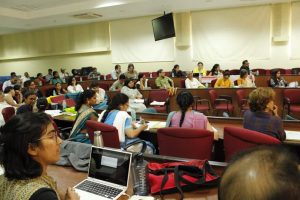 Co-chaired by Prof. Lakshmi Lingam, TISS School of Media and Cultural Studies, and Sujata Kandekhar, Founder Director of CORO, the driving impulse to set up this conference was to counteract conventional forms of research that have largely “remained within rigid and hierarchical forms of scholarship, across both natural science and social science”. The shared intention among participants was “to flip the dominant script to ensure a truly collaborative and enriching process of producing knowledge and action.”
Co-chaired by Prof. Lakshmi Lingam, TISS School of Media and Cultural Studies, and Sujata Kandekhar, Founder Director of CORO, the driving impulse to set up this conference was to counteract conventional forms of research that have largely “remained within rigid and hierarchical forms of scholarship, across both natural science and social science”. The shared intention among participants was “to flip the dominant script to ensure a truly collaborative and enriching process of producing knowledge and action.”
Schieffer shared Trans4m’s integral approach to knowledge creation – in particular as applied in Trans4m’s transformative PhD on Integral Development through employing Participatory Action Research processes. Based on his research trip to Sri Lanka in the previous week, he also provided insights into the case of Trans4m’s integral partner organisation Sarvodaya, emphasizing the significance of co-creating inter-institutional ecologies across society, designed to widen the space for collective knowledge production with a view to bring tangible changes to people, communities and society at large.
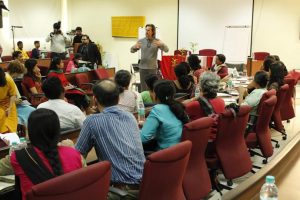 The conference brought together a wide range of fascinating research-to-innovation initiatives from across the country, jointly exploring the following key themes:
The conference brought together a wide range of fascinating research-to-innovation initiatives from across the country, jointly exploring the following key themes:
- Interrogating the collective knowledge building process
- Diverse voices expressed in diverse forms of knowledge creation
- Participatory models of research methodologies and pedagogies
- Pathways for advocacy and empowerment
The over 80 participants presented a large number of applications of collaborative knowledge creation. Topics presented included: Flipping the hierarchy of researcher and researched; communities for conservation and livelihood; collaborative creation of open educational resources; gender transformation; theatre of the oppressed and critical reflection; theatre of transformation to build a field of individual and collective empowerment and healing; community led change embedded in cultural expressions; telling the stories of 833 million rural Indians via the People’s Archive of Rural India; collaborative knowledge creation via forest and water management projects; communities of practice for legal empowerment to secure land rights for women; collaborative processes of women-led sangathans aiming at food security and dignity; co-learning gender; various forms of immerse research; and Coro’s renowned Right to Pee Initiative.
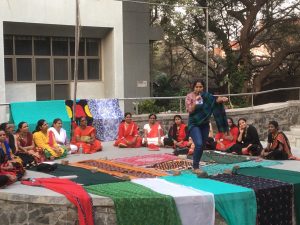
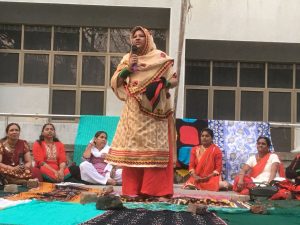
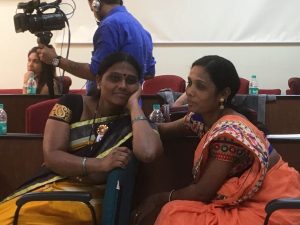
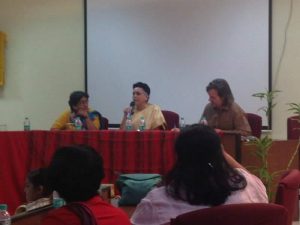 One of the participants, Rajendra Negi, presented the case of Henvalvani Community Radio – a community radio station that had been at the heart of the collaborative research-to-innovation of Trans4m’s Senior Fellow Jean Parker. Parker had developed, in collaboration with local villages and facilitated by Henvalvani Community Radio, an integral approach to community education for community development and disaster prevention.
One of the participants, Rajendra Negi, presented the case of Henvalvani Community Radio – a community radio station that had been at the heart of the collaborative research-to-innovation of Trans4m’s Senior Fellow Jean Parker. Parker had developed, in collaboration with local villages and facilitated by Henvalvani Community Radio, an integral approach to community education for community development and disaster prevention.
The workshop was designed as an integral transformative journey of knowledge creation, giving particular space to participants’ personal experiences of knowledge creation and transformation.
The conference culminated in participants recognizing and expressing the need to deepen, if not also institutionalize, the dialogue that has been initiated between them, and to explore further levels of collective paradigm shift with a view of bringing grassroots voices into the mainstream of societal knowledge production.
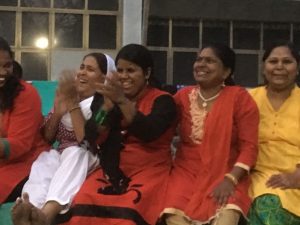 After the conference, CORO and Trans4m took the conversation further, developing initial designs of how CORO, in the next phase of its own evolution, could become an institutional catalyst for grassroots leadership and collaborative knowledge creation across India – strengthened also through interaction with other integral role models from across the world.
After the conference, CORO and Trans4m took the conversation further, developing initial designs of how CORO, in the next phase of its own evolution, could become an institutional catalyst for grassroots leadership and collaborative knowledge creation across India – strengthened also through interaction with other integral role models from across the world.
Watch this space for further developments in the future ….
